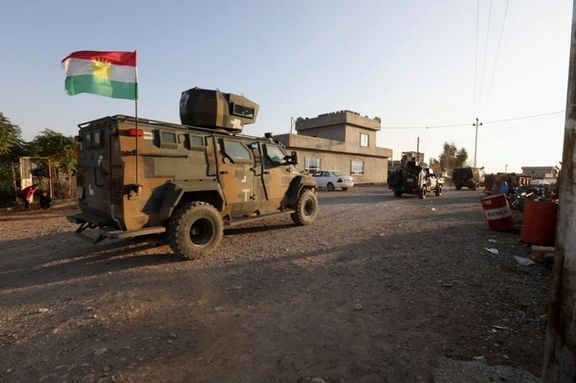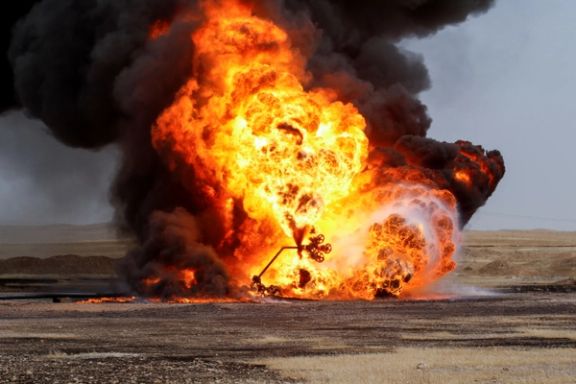Iraqi Forces Deploy As Iran-Backed Militias Attack Kurds In Kirkuk

Iraqi security forces deployed in the northern city of Kirkuk on Sunday as Iran-backed militias have killed several Kurds and continue to threaten more attacks.

Iraqi security forces deployed in the northern city of Kirkuk on Sunday as Iran-backed militias have killed several Kurds and continue to threaten more attacks.
According to police and security sources, four Kurds were shot dead and 15 people were wounded during the clashes in the city, controlled by the Iraqi government and home to diverse groups of people including Kurds, Turkmens, and Arabs.
Amir Shwani, a spokesman for Kirkuk police, said in a statement that a curfew had been lifted and vehicles were moving normally in the city on Sunday, but security forces had deployed additional troops to "prevent violence and protect civilians."
The city has been a point of contention, witnessing disputes between Kurdish forces and the Iraqi government. Iranian-backed militias have recently escalated aggression in the region, firing rockets to target gas fields on the road to Sulaymaniyah, a large city in the Kurdistan autonomous region about 100 kilometers west of Kirkuk.

The clashes followed days of tensions over a building in Kirkuk that was once the headquarters for the Kurdistan Democratic Party (KDP) but was used by the Iraqi army as a base since 2017. Iraq's federal supreme court issued an urgent ruling on Sunday obliging the government to delay procedures regarding the handover of the building to the KDP.
Kirkuk, an oil-rich province in northern Iraq along the fault lines between the Kurdish autonomous region and areas controlled by Iraq's Shiite-dominated central government, has been the focus of some of the country's worst post-Islamic State violence. Arab residents and minority groups, who say they suffered under Kurdish rule, have protested the KDP's return to the city.
“Dozens of protesters, mainly members of the Iran-backed Asaib Ahl al-Haq militia and their supporters, have set up tents near the JOC headquarters since Sunday evening in protest to the potential return of the KDP. They have blocked access to the highway and vowed to continue their demonstration until [Prime Minister Shia al-Sudani retracts his decision,” Rudaw Kurdish news agency reported reported.
Similar clashes are also happening between Kurdish-led forces and groups of Islamic militias and tribes in eastern Syria. The violence has killed 49 fighters from both sides and eight civilians, according to the Syrian Observatory for Human Rights war monitor.
The involvement of the pro-Iran militias also has another dimension. Late in August, Iran and Iraq formalized an agreement to dismantle Iranian Kurdish dissident factions stationed in the northern reaches of Iraq and relocate them from their bases.
Nasser Kanaani, spokesperson for Iran's Foreign Ministry, said the Iraqi government had undertaken the commitment "to disarm the armed terrorist groups stationed in Iraq's territory by September 19, and subsequently, evacuate and transfer them from their military bases to camps designated by the Iraqi government."
Historically, Iran has intermittently executed targeted operations against the Kurdistan Democratic Party in Iran (KDPI) and other Iranian Kurdish dissident elements operating within Iraq's semi-autonomous Kurdish region, adjacent to Iran's borders.
Various Iranian dissident factions in Iraq have aligned their allegiances with the two principal Iraqi Kurdish parties: the Kurdistan Democratic Party, headquartered in Erbil, and the Patriotic Union of Kurdistan party, with its stronghold in Suleimaniyah.